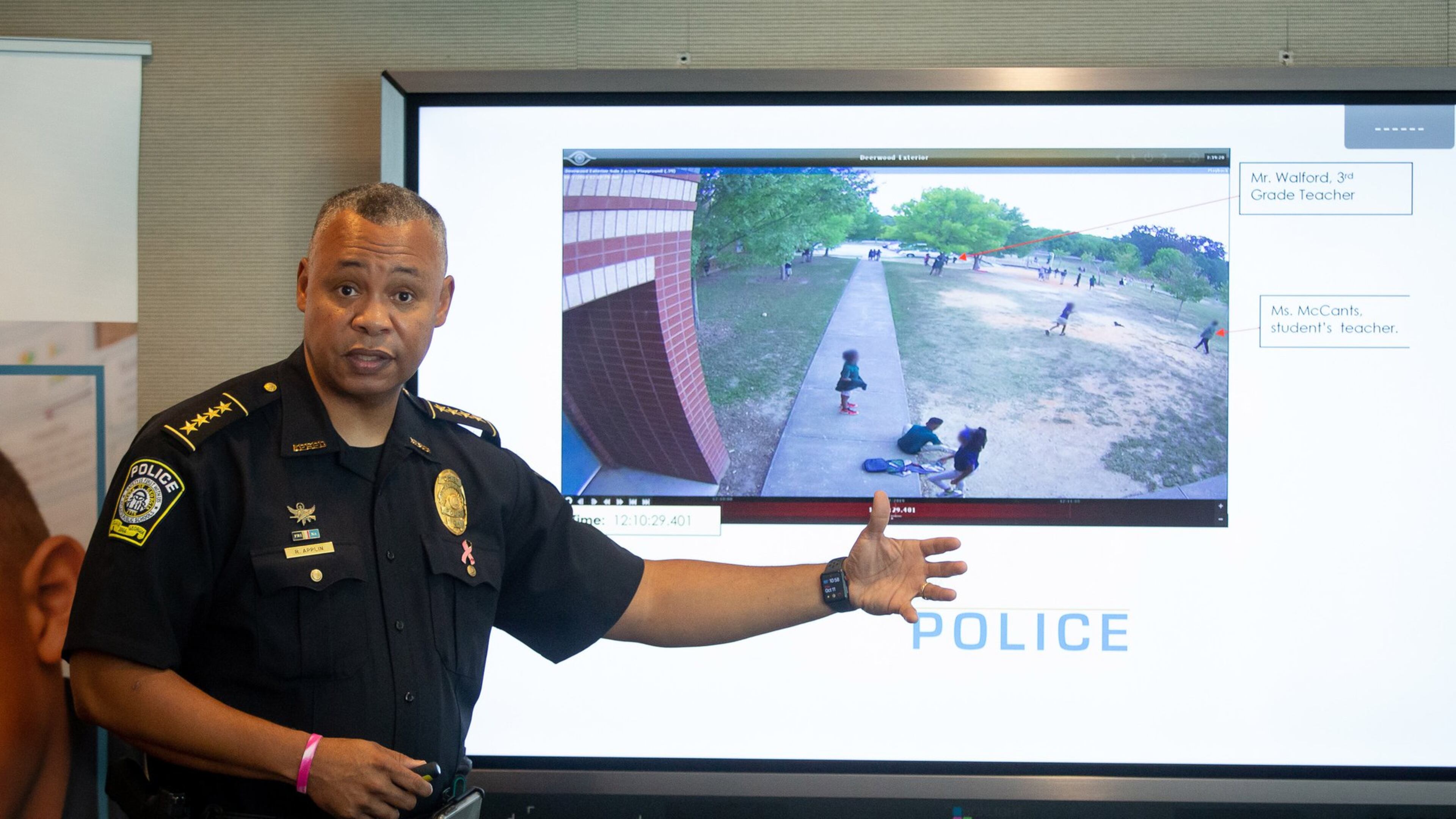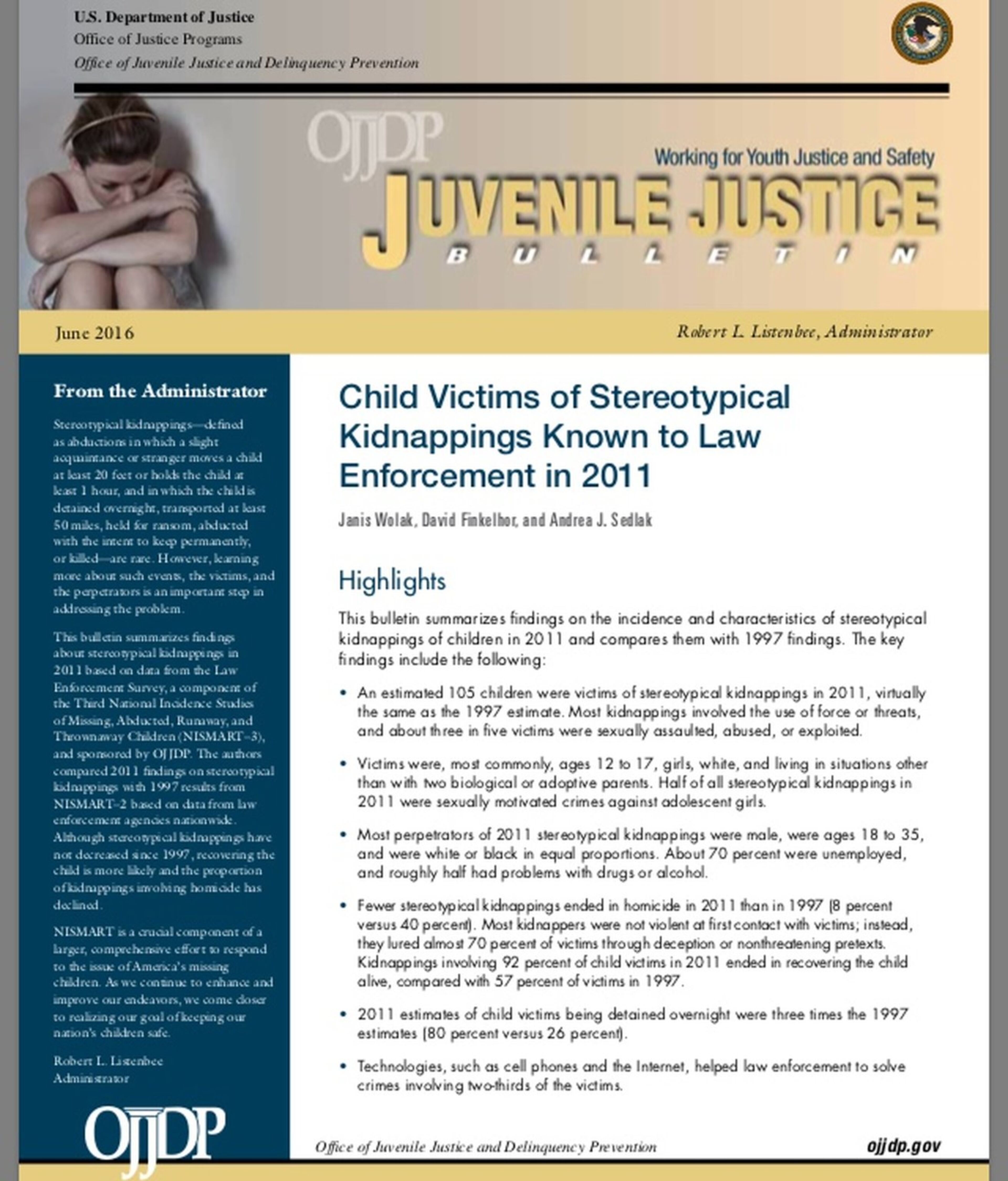Torpy at Large: Stranger Danger always lurking? Only in media shadows

Recently, a frightening story burst across the Atlanta media landscape — an especially aggressive attempted child abduction, one right out of a Liam Neeson movie.
An 8-year-old girl at Deerwood Academy in southwest Atlanta told teachers — and then police and news crews — that a man, a stranger, started choking her on the school playground during recess.
While in the midst of this attack, a gun fell from the man’s pocket, so he picked it up and pointed it at her head. Thankfully, a teacher blew the whistle ending recess and the would-be kidnapper scampered away.
Seeing that story, I texted a co-worker: “Totally think that story about 8-year-old kid and possible kidnapping is a figment of her imagination.”
Two days later, school officials announced what anyone with common sense already knew — that the case was "unfounded."
“The evidence collected, including the surveillance footage, testimonials from students and adults and the timeline of events, does not support the student’s allegation of being attacked on the playground by an armed man,” school officials said.
That a young kid said this is not surprising. Kids imagine all sorts of things.
But it was startling to have her trotted out in front of TV cameras to recount her "ordeal." What got me was that the media — the TV media, especially — bought this one. Again.
Hook. Line. And Sinker.

What made my spidey sense tingle? Well, if a full-grown kidnapper wanted to snatch a third grader, he’d just grab her and carry her off. The choking and gun play on a schoolyard amid oblivious fellow classmates and teachers just made the tale more suspect.
More so, these crimes are fortunately very, very (very) rare. Extraordinarily rare. Hit the Powerball jackpot rare.
In fact, a study conducted a few years ago for the Justice Department said there are perhaps 100 "stereotypical" child kidnappings a year — abductions by a stranger or a slight acquaintance of the family.
One hundred. Most of those are teenagers.
Now, I know some of you are saying, “That’s not right! Kids are snatched away all the time. They’re sold to sex traffickers.”
According to parents.com, "Every 40 seconds in the United States, a child becomes missing or is abducted."
It’s enough to padlock Junior in his room.
There are large, scary numbers thrown around. Like 424,066 from the National Center for Missing and Exploited Children, which the site says is “reports of missing children made to law enforcement in the U.S. in 2018.” Or 32,121 “active missing” juveniles under 18 on the FBI site.
But “missing” is a moving target, a catch-all phrase that includes runaways (far and away the largest group), family custody disputes and miscommunications.
"This all adds to our fear culture," said Lenore Skenazy, head of Let Grow, a nonprofit promoting childhood independence. "To be a good parent, we're told we should think of all the horrible things that can happen to them. But I'd worry more about driving them to the dentist."
Especially in Atlanta traffic. She said keeping kids inside and worried could increase obesity and depression.

Skenazy asked me how long it would take if you left your kid outside for him or her to be abducted by a stranger?
I estimated 10,600 years. That was the highest estimate she’s heard, but it fell far short.
Warwick Cairns, British author of "How to Live Dangerously," wrote, "Worried about someone abducting your child? You'd have to lock them out of the house every day for 200,000 years before they were taken." The United States is safer, he added, saying it would take 500,000 years here.
David Finkelhor, director of the Crimes against Children Research Center and an author of the study that determined the rarity of stranger abductions, said "it's possible we're taking anxiety too far. Although it's hard to know where that line should be."
He said the hyper-focus on children has caused the number of abductions, already quite low, to become a rarity. That vigilance is vital because children are twice as likely to be beaten or robbed than adults. Other youths are usually the perpetrators, he said, “But I’d discourage people from minimizing the fear and trauma that they experience.”
And as crime rates have dropped through the decades, so has maltreatment of children. Another Finkelhor study found the rates of sex abuse against juveniles dropped 65 percent between 1990 and 2016; physical abuse dropped 53 percent and neglect 12 percent.
“Most of the violence kids experience is at the hands of people they know,” he said.
Still the fear of Stranger Danger remains unabated in the public psyche. Kids don’t walk to school or play outside by themselves. Monitoring is omnipresent.
I checked out other cases this year. In May, two kids (9 and 11) in Hapeville said men in a white van tried to kidnap them. One TV news report was headlined “Children narrowly escape kidnappers in Hapeville,” as if it happened for sure.
Police said many houses were under construction in that area, and they think the vehicle was simply looking for a job site. The cops there told me they chased down lots of tips but found nothing. “You have to treat it like it happened,” said Lt. William Hughes.
In June, a woman tried to "snatch" a child at Hartsfield-Jackson International Airport. A security video shows an obviously deranged woman see a family and walk along with them while holding onto the stroller. Finally, the father tries to get her to leave but she grabbed the 6-year-old and tried to pull him away before she was arrested.
And in August, a woman told TV reporters and police that a boy about 12 years old tried to carry away her 4-year-old daughter at the Georgia Aquarium before she interceded. The boy told the mom he thought it was his sister he was grabbing.
Atlanta police investigated and determined that to be the case, saying “an initial review of video shows that the teenager was, in fact, at the aquarium on Sunday with a family that included a girl roughly the same age as (the mother’s).”
So, yes, we all must be aware but c’mon TV, give it a break. You’re making us jumpy.


